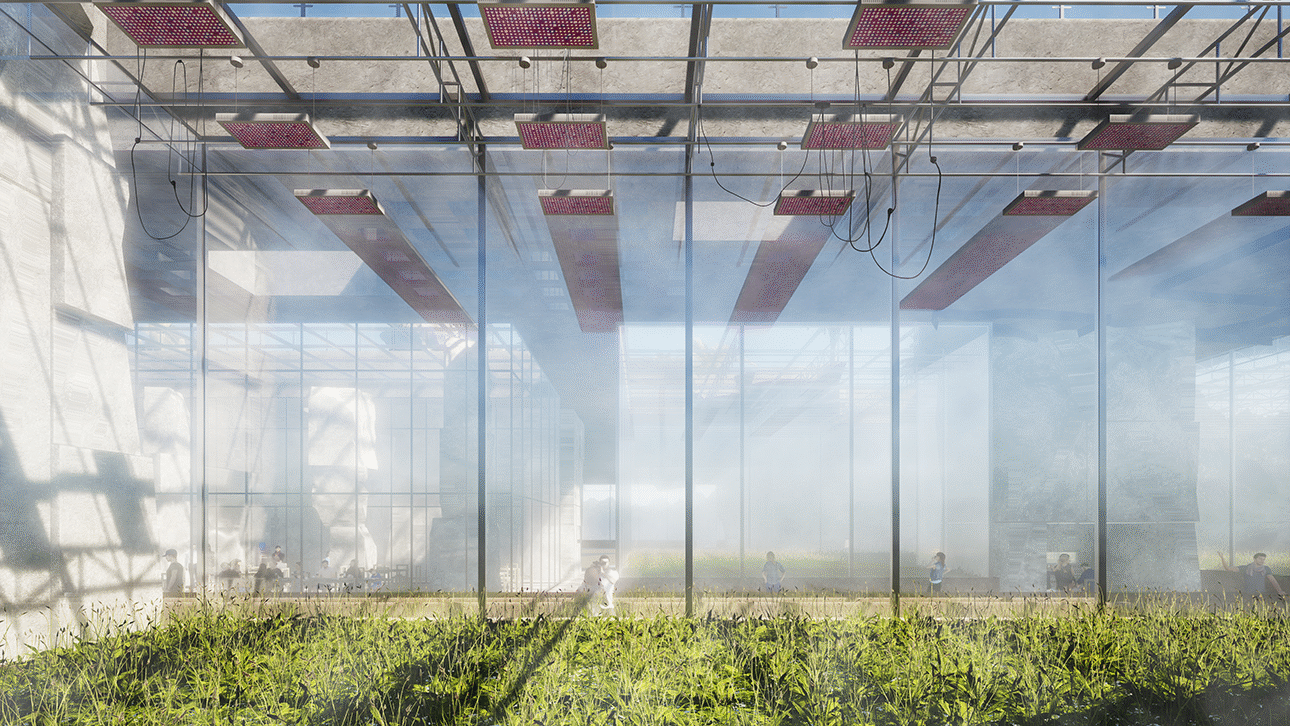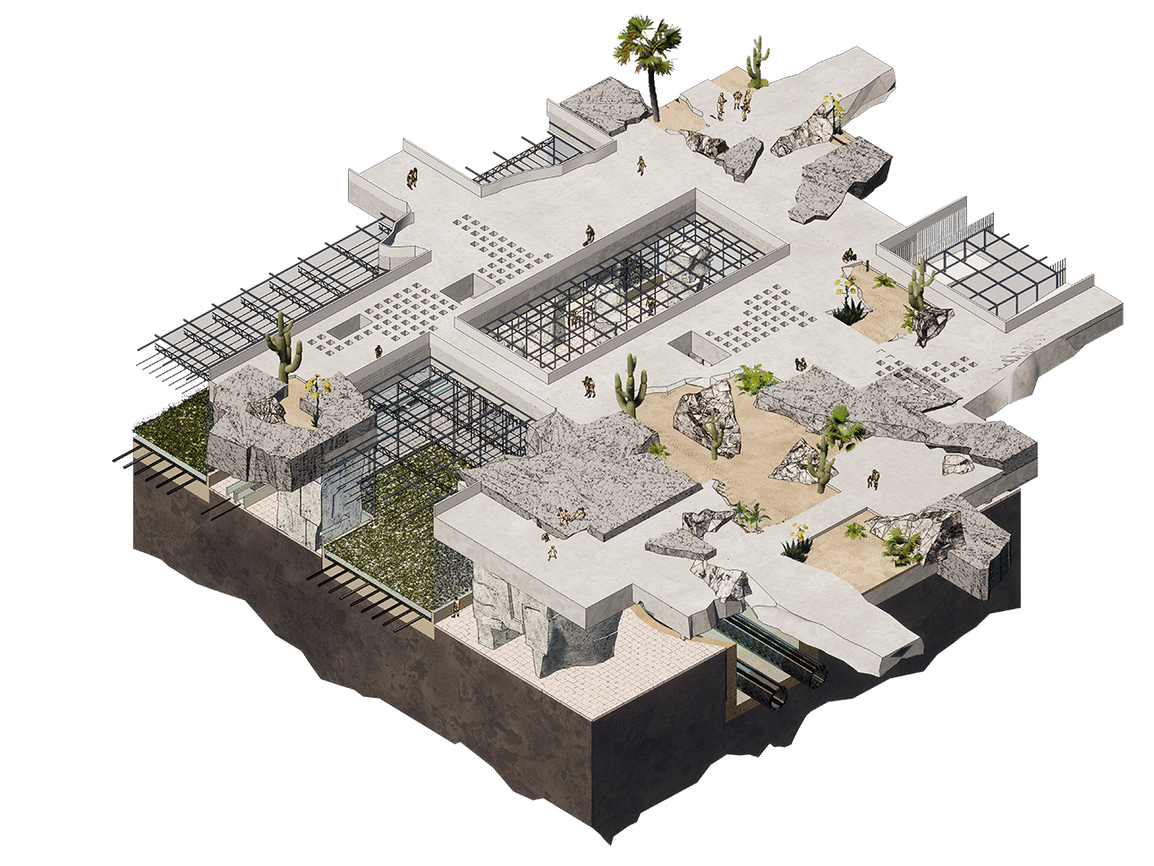ALINA ROSE SEBASTIAN
Architecture, Art & Design

Reconstructing Mass: A Farm to Table Project, Marrakesh
Team: Alina Sebastian and Mary Krajekian
Mentor: Professor Faysal Tabbarah

Located at the edge of the Oued Issil in Morocco, this project explores the potential of aquaponics as an agricultural tool to address the issue of depleting water resources and limited arable land in Marrakesh. Additionally, it addresses the issue shifting dietary patterns in the region by proposing an experimental kitchen that seeks to revive the Mediterranean Diet which, listed in the UNESCO List of Intangible Cultural Heritage of Humanity, was closely linked to the Moroccan lifestyle.
The proposed architectural solution is a farm to table system that combines the processes of production and consumption within the same space. It challenges existing aquaponic systems that typically comprise of plastic greenhouses in favor of a sustainable construction system that re-purposes abandoned quarry pieces from 1885 quarries that exist in Morocco.


The primary structural system comprises of columns, walls and volumes formed by stacking and interlocking found quarry pieces from abandoned quarries in Morocco. Repurposing these abandoned stones minimizes the environmental impact on the site. The street-level roof that functions as an urban park is constructed from concrete and hybridized with the found stones for increased structural stability.
To reduce water loss by evaporation, the aquaponic spaces were placed below-ground in semi-enclosed conditions. The thickness of the quarry stones was used to provide increased thermal comfort by reducing heat transfer into the interior spaces. The project also allows for cross-ventilation by minimizing hermetically sealed spaces and allowing free airflow.



 |  |
|---|---|
 |  |
 |  |
 |  |
 |